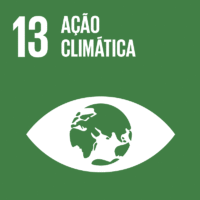Ciência_Iscte
Publicações
Descrição Detalhada da Publicação
Education for sustainable development and climate change education: the potential of social network analysis based on twitter data
Título Revista
Sustainability
Ano (publicação definitiva)
2019
Língua
Inglês
País
Suíça
Mais Informação
Web of Science®
Scopus
Google Scholar
Esta publicação não está indexada no Overton
Abstract/Resumo
Education is considered as an essential tool for achieving sustainability-related goals. In this regard, Education for Sustainable Development (ESD) and Climate Change Education (CCE) have become prominent concepts. Central characteristics of both concepts influence the non-hierarchical network governance structure that has formed around them: (1) their international origin, (2) the conceptual ambiguity that surrounds them, and (3) the limited implementing power of international organizations, who developed these concepts. Hence, networks are essential to ESD and CCE, however, only few studies have used Social Network Analysis (SNA) techniques to analyze their governance structure. The aim of this article is to illustrate how to use SNA, based on Twitter data, as an approach to examine the governance structure that has developed around ESD and CCE. We conduct an illustrative SNA, using Twitter data during three global climate change summits (2015-2017) to examine CCE-specific debates and identify actors exerting the most influence. We find that international organizations and international treaty secretariats are most influential across all years of the analysis and moreover, are represented most often. These findings show that using SNA based on Twitter data offers promising possibilities to better understand the governance structure and processes around both concepts.
Agradecimentos/Acknowledgements
We would like to thank Lea Susanne Helm for her research assistance on this study.
Palavras-chave
Education for sustainable development (ESD),Climate change education (CCE),Social network analysis (SNA),Twitter,Network governance,International organizations,United Nations Educational Scientific and Cultural Organization (UNESCO),United Nations Framework Convention on Climate Change (UNFCCC)
Classificação Fields of Science and Technology
- Ciências da Educação - Ciências Sociais
- Ciências Políticas - Ciências Sociais
Registos de financiamentos
| Referência de financiamento | Entidade Financiadora |
|---|---|
| KO 4997/1-1 | German Research Foundation |
| UID/SOC/03126/2013 | Fundação para a Ciência e a Tecnologia |
| KO 4997/4-1 | German Research Foundation |
Contribuições para os Objetivos do Desenvolvimento Sustentável das Nações Unidas
Com o objetivo de aumentar a investigação direcionada para o cumprimento dos Objetivos do Desenvolvimento Sustentável para 2030 das Nações Unidas, é disponibilizada no Ciência_Iscte a possibilidade de associação, quando aplicável, dos artigos científicos aos Objetivos do Desenvolvimento Sustentável. Estes são os Objetivos do Desenvolvimento Sustentável identificados pelo(s) autor(es) para esta publicação. Para uma informação detalhada dos Objetivos do Desenvolvimento Sustentável, clique aqui.

 English
English




